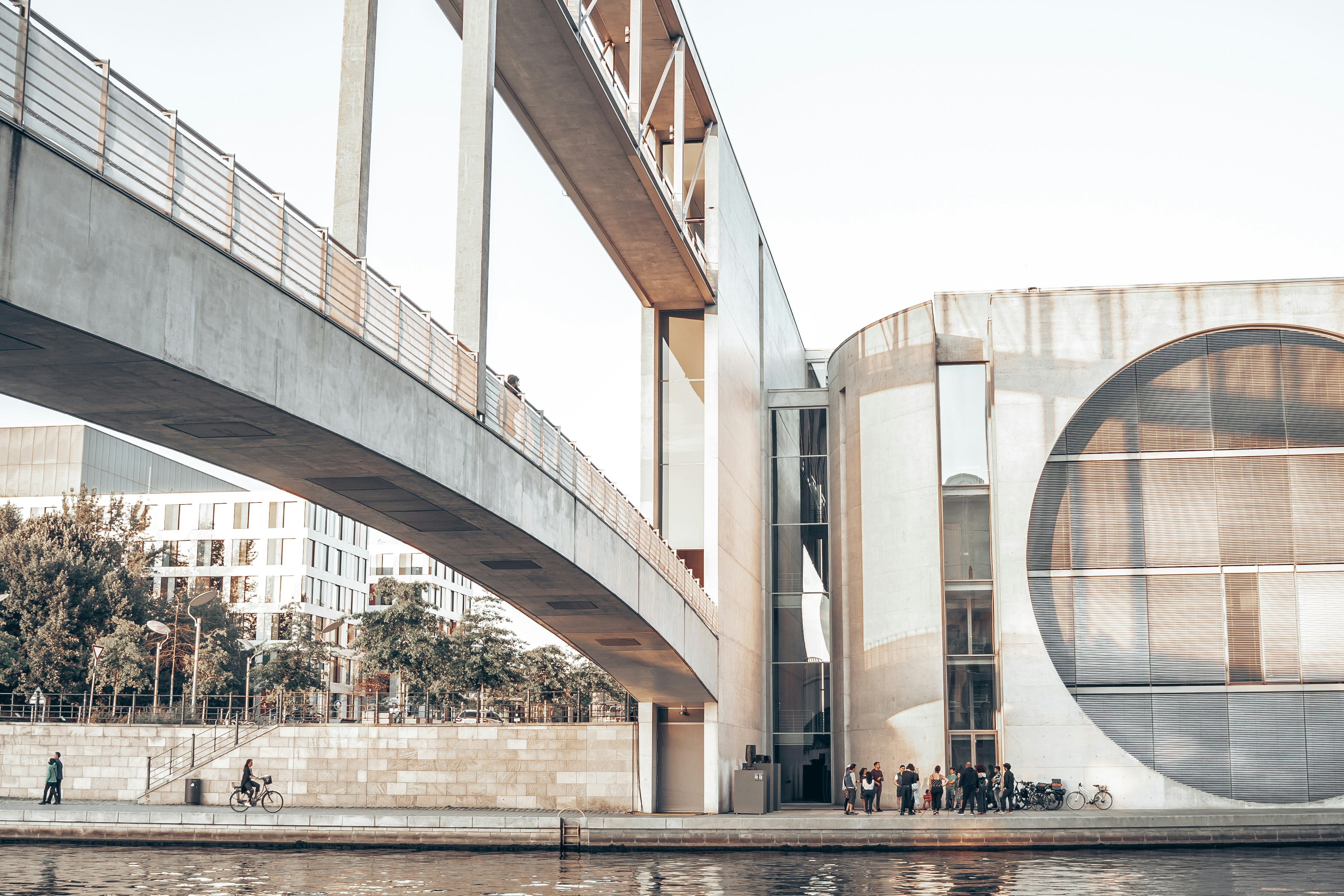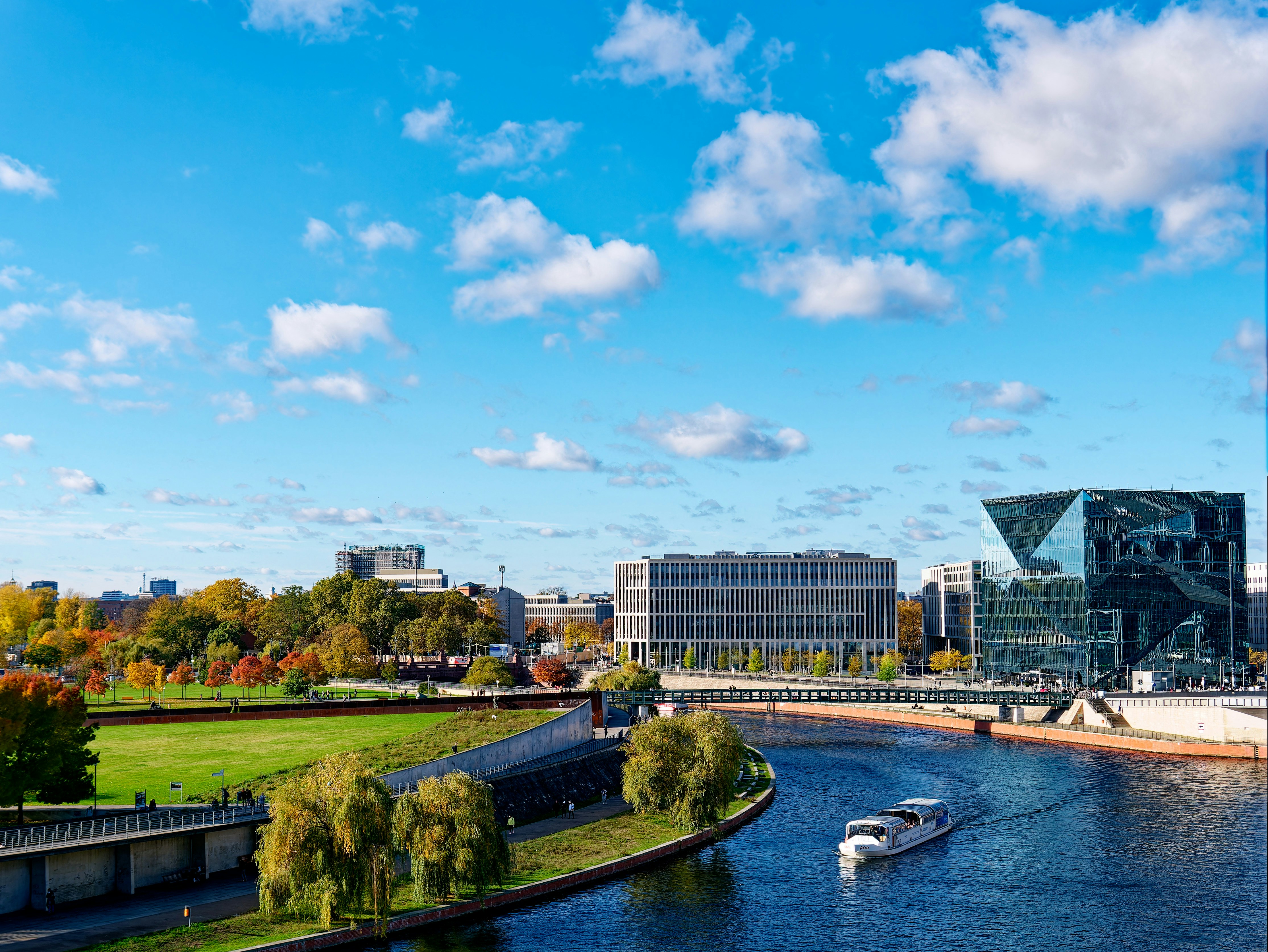
Blog
October 12, 2024
Applying for Permanent Residency (Niederlassungserlaubnis) in Berlin: A Guide for Expats

Blog
October 12, 2024
Applying for Permanent Residency (Niederlassungserlaubnis) in Berlin: A Guide for Expats
Thinking about applying for a Niederlassungserlaubnis? Here’s what you need to know!
If you're an expat in Berlin and are considering applying for Permanent Residency (Niederlassungserlaubnis), you may find the process overwhelming. This post aims to clarify the requirements and help you understand the steps involved.
1. What is a Permanent Residency (Niederlassungserlaubnis)?
A Niederlassungserlaubnis allows non-EU nationals to live and work in Germany indefinitely. It provides a more stable status compared to temporary visas, enabling you to fully integrate into German life.
2. Eligibility Criteria for PR
Your eligibility for PR depends on the type of residence permit you hold. Here’s a breakdown of the relevant rules:
Skilled Workers: If you apply under the rules for skilled workers, both your time with a skilled worker permit and your time under a Blue Card count toward the 36-month requirement. If you hold a degree from a German institution, this requirement reduces to 24 months. For more information, visit the Skilled Workers Service Page.
Important Note: The page may not have been updated to reflect recent changes in the law. While it states that only residence permits under § 18a, § 18b, or § 18d count, it should also include § 18g (Blue Cards). For the correct legal text, refer to this link: German Residence Act.
Blue Card Holders: If you are applying under the Blue Card rules, only time spent in employment that met the Blue Card requirements will count toward the 21-month minimum (or 33 months if you haven't completed the B1 German language requirement). More information can be found on the Blue Card Service Page.
Unsure Which Rules Apply to You? This Guidance Will Help You!
If you're not certain which category applies to you, here are some important considerations:
If your employment on the skilled worker permit met the Blue Card requirements, those months will count toward your Blue Card PR eligibility timeline.
If your employment on the skilled worker permit did not meet the Blue Card requirements, and you do not have a degree from a German university, it might take longer to qualify, but you may still have options.
In such cases, applying under the Blue Card holder rules might be the fastest route, provided you wait until you have held the Blue Card for 21 months.
4. Key Documents Needed for PR Application
When applying for PR, ensure you have the following documents prepared:
Valid Passport
Current Residence Permit
Proof of Employment or Self-Employment (salary slips, tax returns, etc.)
Proof of Health Insurance
Proof of Accommodation (rental contract)
Proof of German Language Skills (usually B1 or above)
If you’re uncertain about what documents you need or how to gather them, I can assist you in preparing your application.
5. What to Expect After Submitting Your Application
Once your application is submitted to the Berlin Foreigners' Office (Ausländerbehörde), it can take several weeks or even months to process. You may be contacted by the Landsamt for additional information or verification.
If you're outside Germany, such as traveling with your spouse, ensure you have all necessary documents on hand. This can prevent delays or the need to return to Germany unnecessarily.
6. Conclusion: Seek Support for Your Application
Applying for permanent residency in Germany can be complex, but it doesn't have to be stressful. At ExpatEaze, I specialize in helping expats navigate the intricacies of the application process. Whether you need assistance gathering documents, preparing for appointments, or understanding the legal requirements, I'm here to provide personalized support tailored to your situation.
📩 Get in Touch Today
Got questions? I’ve got answers — and I’m here to help!
📞 Phone: +49 163 4732254
💬 WhatsApp: Click to Chat
✉️ Email: info@expateaze.de
🌐 Website: www.expateaze.de
If you're an expat in Berlin and are considering applying for Permanent Residency (Niederlassungserlaubnis), you may find the process overwhelming. This post aims to clarify the requirements and help you understand the steps involved.
1. What is a Permanent Residency (Niederlassungserlaubnis)?
A Niederlassungserlaubnis allows non-EU nationals to live and work in Germany indefinitely. It provides a more stable status compared to temporary visas, enabling you to fully integrate into German life.
2. Eligibility Criteria for PR
Your eligibility for PR depends on the type of residence permit you hold. Here’s a breakdown of the relevant rules:
Skilled Workers: If you apply under the rules for skilled workers, both your time with a skilled worker permit and your time under a Blue Card count toward the 36-month requirement. If you hold a degree from a German institution, this requirement reduces to 24 months. For more information, visit the Skilled Workers Service Page.
Important Note: The page may not have been updated to reflect recent changes in the law. While it states that only residence permits under § 18a, § 18b, or § 18d count, it should also include § 18g (Blue Cards). For the correct legal text, refer to this link: German Residence Act.
Blue Card Holders: If you are applying under the Blue Card rules, only time spent in employment that met the Blue Card requirements will count toward the 21-month minimum (or 33 months if you haven't completed the B1 German language requirement). More information can be found on the Blue Card Service Page.
Unsure Which Rules Apply to You? This Guidance Will Help You!
If you're not certain which category applies to you, here are some important considerations:
If your employment on the skilled worker permit met the Blue Card requirements, those months will count toward your Blue Card PR eligibility timeline.
If your employment on the skilled worker permit did not meet the Blue Card requirements, and you do not have a degree from a German university, it might take longer to qualify, but you may still have options.
In such cases, applying under the Blue Card holder rules might be the fastest route, provided you wait until you have held the Blue Card for 21 months.
4. Key Documents Needed for PR Application
When applying for PR, ensure you have the following documents prepared:
Valid Passport
Current Residence Permit
Proof of Employment or Self-Employment (salary slips, tax returns, etc.)
Proof of Health Insurance
Proof of Accommodation (rental contract)
Proof of German Language Skills (usually B1 or above)
If you’re uncertain about what documents you need or how to gather them, I can assist you in preparing your application.
5. What to Expect After Submitting Your Application
Once your application is submitted to the Berlin Foreigners' Office (Ausländerbehörde), it can take several weeks or even months to process. You may be contacted by the Landsamt for additional information or verification.
If you're outside Germany, such as traveling with your spouse, ensure you have all necessary documents on hand. This can prevent delays or the need to return to Germany unnecessarily.
6. Conclusion: Seek Support for Your Application
Applying for permanent residency in Germany can be complex, but it doesn't have to be stressful. At ExpatEaze, I specialize in helping expats navigate the intricacies of the application process. Whether you need assistance gathering documents, preparing for appointments, or understanding the legal requirements, I'm here to provide personalized support tailored to your situation.
📩 Get in Touch Today
Got questions? I’ve got answers — and I’m here to help!
📞 Phone: +49 163 4732254
💬 WhatsApp: Click to Chat
✉️ Email: info@expateaze.de
🌐 Website: www.expateaze.de




Thinking about applying for a Niederlassungserlaubnis? Here’s what you need to know!
If you're an expat in Berlin and are considering applying for Permanent Residency (Niederlassungserlaubnis), you may find the process overwhelming. This post aims to clarify the requirements and help you understand the steps involved.
1. What is a Permanent Residency (Niederlassungserlaubnis)?
A Niederlassungserlaubnis allows non-EU nationals to live and work in Germany indefinitely. It provides a more stable status compared to temporary visas, enabling you to fully integrate into German life.
2. Eligibility Criteria for PR
Your eligibility for PR depends on the type of residence permit you hold. Here’s a breakdown of the relevant rules:
Skilled Workers: If you apply under the rules for skilled workers, both your time with a skilled worker permit and your time under a Blue Card count toward the 36-month requirement. If you hold a degree from a German institution, this requirement reduces to 24 months. For more information, visit the Skilled Workers Service Page.
Important Note: The page may not have been updated to reflect recent changes in the law. While it states that only residence permits under § 18a, § 18b, or § 18d count, it should also include § 18g (Blue Cards). For the correct legal text, refer to this link: German Residence Act.
Blue Card Holders: If you are applying under the Blue Card rules, only time spent in employment that met the Blue Card requirements will count toward the 21-month minimum (or 33 months if you haven't completed the B1 German language requirement). More information can be found on the Blue Card Service Page.
Unsure Which Rules Apply to You? This Guidance Will Help You!
If you're not certain which category applies to you, here are some important considerations:
If your employment on the skilled worker permit met the Blue Card requirements, those months will count toward your Blue Card PR eligibility timeline.
If your employment on the skilled worker permit did not meet the Blue Card requirements, and you do not have a degree from a German university, it might take longer to qualify, but you may still have options.
In such cases, applying under the Blue Card holder rules might be the fastest route, provided you wait until you have held the Blue Card for 21 months.
4. Key Documents Needed for PR Application
When applying for PR, ensure you have the following documents prepared:
Valid Passport
Current Residence Permit
Proof of Employment or Self-Employment (salary slips, tax returns, etc.)
Proof of Health Insurance
Proof of Accommodation (rental contract)
Proof of German Language Skills (usually B1 or above)
If you’re uncertain about what documents you need or how to gather them, I can assist you in preparing your application.
5. What to Expect After Submitting Your Application
Once your application is submitted to the Berlin Foreigners' Office (Ausländerbehörde), it can take several weeks or even months to process. You may be contacted by the Landsamt for additional information or verification.
If you're outside Germany, such as traveling with your spouse, ensure you have all necessary documents on hand. This can prevent delays or the need to return to Germany unnecessarily.
6. Conclusion: Seek Support for Your Application
Applying for permanent residency in Germany can be complex, but it doesn't have to be stressful. At ExpatEaze, I specialize in helping expats navigate the intricacies of the application process. Whether you need assistance gathering documents, preparing for appointments, or understanding the legal requirements, I'm here to provide personalized support tailored to your situation.
📩 Get in Touch Today
Got questions? I’ve got answers — and I’m here to help!
📞 Phone: +49 163 4732254
💬 WhatsApp: Click to Chat
✉️ Email: info@expateaze.de
🌐 Website: www.expateaze.de






